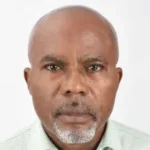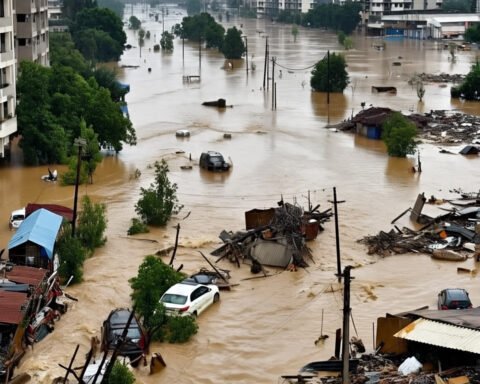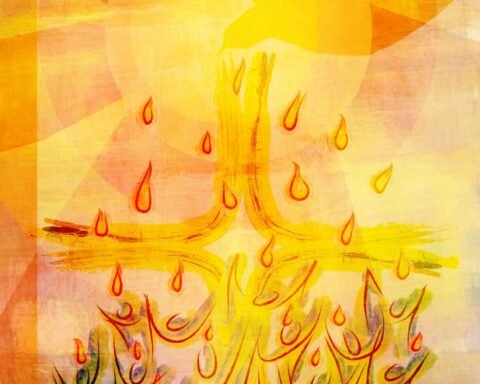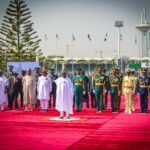
SYRIA is an enigma. It has always been from ancient times including the era preceding the writing of the Holy Bible by some inspired persons. We will have to contend with time and space if we tried to explore the enigmas of that country in detail. In spite of its current travails, Syria remains a mystery notwithstanding its rich history, cultural diversity, and fractious, indeed, tumultuous politics. It might as well be that the aforementioned traits are the reasons for the mystery of that Middle East country. Well before Damascus, the capital of this historic country fell last week to the many rebel groups that besieged it, it had been losing territory inch-by-inch and day-by-day. But the loss of territory on its own does not necessarily lead to the demise of a country or to a regime change. A country or a regime dies faster when there’s a disconnect with the citizens. That was the lot of Bashar al-Assad who suddenly fled from Syria after his family had ruled the country with iron fists for more than half a century.
Syria’s a classical case of a country that first died in the hearts and minds of its people long before the erosion started manifesting in the physical. It was decades in the making and it was obvious except to those who benefited from the rot. It is about the same thing in Nigeria with the country falling apart in the eyes of everybody except in the eyes of the ruling elite. The demise of a country begins with the erosion of its people’s sense of identity, purpose and connection to the homeland. The clear implication is that the decline of a country is not just a physical or economic phenomenon, but a psychological and emotional one too. There’s no doubt that a country’s strength and resilience are deeply rooted in the collective consciousness of its citizens. When people lose faith in their country, its institutions, and its values, the very fabric of that country is bound to unravel. This was, probably still is, the case with Syria. And it speaks to the situation in Nigeria today. Is our country at risk, given the manifest disconnect between Nigeria’s ruling elite and sections of its population, especially the majority of the younger generation who feel disaffected by the direction the country is headed? Is implosion inevitable given the obduracy of our rulers? Can it yet be headed off? Is anything being done now or has anything been done in the last 25 years of the fourth republic to salvage the country or are more grievous things being done to savage it? Time will tell.
Let’s attempt to speak to why the fall of the Assad regime in Syria and the uncertainty about the future of that country should be of concern to Nigeria, Nigerians and their rulers. As in Syria but for different reasons, there’s a significant and growing loss of national pride because many Nigerians no longer feel a sense of pride and ownership of their country. It’s increasingly becoming a case of ‘us versus them’. As in Syria also there were things that hitherto held our people together in the past. Now there’s a disconnect from whatever is left of the things that could be considered as values and principles that used to define us. A significant portion of Nigerians are emotionally detached from the country, including from its history, culture, and traditions. You may do well to ask that teenager or tweenager (children in their 20s) next to you who is not an heir to a plum political office or to private wealth what they feel about our country. Kemi Badenoch, leader of the opposition Conservative Party in the United Kingdom, is a typical diaspora Nigerian who holds the citizenship of another country. She has been in a spat with Nigeria’s vice president Kashim Shettima over comments she made about Nigeria. She represents a typical diaspora Nigerian – acute frustration with the state of our country. It’s baffling that Shettima chose to interject in Kemi’s expression of frustration. My people would say that ‘onaghi adinma ka madu di ka ihe ejiri ko ya onu’. You don’t need to behave like a mad person just because someone said that you are mad. The only way Shettima can shame Kemi is for him to be an example of altruistic leadership in our country. For now we’ll ignore Kemi’s expressed Yoruba bonafide and her slur in distancing herself from a part of the country and their sectarian contribution to Nigeria’s lingering insecurity. Could this be a pointer that Nigeria is actually dying in the hearts and minds of its citizens?
And when a country dies in the souls of its citizens, as appears to be the case of Syria under the successive Assad family regimes, and as it seems to be applying to Nigeria, it leads or can lead to a range of negative consequences. It can trigger social unrest and violent agitations as happened in Syria that have led to the fall of the regime and an uncertain future for the country. Citizens become increasingly frustrated, resort to protests, unrest and violence as Nigeria has been witnessing. A disconnection with a country makes people vote with their feet through indiscriminate migrations sometimes through hazardous routes including deserts on foot, and oceans using dinghy boats. Some more desperate ones try to flee by inserting themselves inside tyre and cargo holds of Europe, Asia or American-bound commercial aircraft. It also accounts for brain drain where talented individuals choose to leave the country to seek better opportunities elsewhere. We live in an era where well trained and skillful compatriots abandon their otherwise respectable jobs and businesses here to travel abroad where they waste their talents by engaging in menial jobs. The life of an average Nigerian is defined by frustration, desperation, despondency and lingering hopelessness. To many fellow citizens, the Renewed Hope mantra of the Tinubu regime is a bad joke.
When your best brains flee, the country could experience economic decline, a lack of investment, dearth of innovation, and lacklustre entrepreneurship. Indeed, there could be economic stagnation which could spike the crime rate and make individuals and corporations unsafe. Even the government will be compelled to spend more money to combat crime. When this happens investment will be imperiled and the provision of infrastructural facilities will suffer since the money for their provision will be channeled to fighting crime and criminals. It’s a vicious cycle. Our country is showing signs of these ailments. When a country loses its place in the hearts and minds of its citizens, it stands the risk of loss of its sovereignty. This scenario could be far-fetched in the case of Nigeria. But a weakened country in terms of governance and national security could become vulnerable to external influences that could threaten its independence.
Nigeria is weakened in governance and this is compounded by conjectures that the critical mass of its leadership could be assets of powerful foreign countries. Gradually, Nigeria is ticking the boxes of everything that could prove fatal to its well-being. Not too long ago, no other person than a former military ruler and later an elected civilian president, Olusegun Obasanjo, while in the United States of America warned that Nigeria was barreling towards a failed state. But Nigerian rulers are adept at living in denial. It gives them comfort because it’s blissful. It postpones the day of reckoning. So it was not strange when the extant regime promptly and vigorously dismissed the assertions of Obasanjo. But Obasanjo was not alone in raising concerns about the declining status and stature of our country in the comity of nations, and the emerging signs of state capture. Other prominent citizens have spoken in that regard.
Syria and Nigeria may share some things in common but they are two different countries, in different parts of the world, and which have followed different trajectories in their aspirations for growth and development. Nigeria’s aspiration to growth and development may actually have been in reverse gear for many years. It was heightened during the eight disastrous years of Muhammadu Buhari (2015-2023). In Syria Hafez al-Assad died of cancer. His preferred son and heir apparent Bassel had died earlier in a car crash in 1994. So his despised second son Bashar was quickly drafted and recalled from his training as a doctor in England, and groomed for rulership. He assumed the presidency when his father died and started off as an economic and political reformer. But when Syrians demanded more freedoms and political reforms, Bashar dropped the baton and returned to the playbook of his father – use of the sledgehammer. For years he maimed and killed his people until he lost grip and fled to Russia for asylum. History is replete with the certain fate of every ruler that resorts to iron fists.
Nigeria does not yet have a father-to-son-to-grandchild rulership template. But who says it cannot happen here. It starts with state capture and some political commentators are already persuaded that we are headed in that direction. Seyi is the son of president Tinubu. He is said to be preparing to be the governor of Lagos state in 2027. That’s a legitimate aspiration. But of greater note is that he is a permanent fixture in the delegations of the president’s foreign trips. He is often at the head of protocol standings in foreign lands, usually in front of ministers, diplomats and, other Nigerian state officials. Is Seyi also being prepared for the presidency after his father or sometime later. Before Hafez al-Assad died he took Bashar to France and handed him over to the then French president Jacque Chirac. Hafez told Jacque to treat Bashar as his own son and to help the young man become president of Syria. Jacque Chirac delivered when Hafiz died. Now Tinubu enjoys a difficult to explain association with France and romance with its president Emmanuel Macron. And our president has a politically ambitious son, Seyi. But I do not think that there’s any dots to connect. Only that I have since dropped the notion that certain things cannot happen here. I did so for the good of my mental health.
-
ONUOHA, a syndicated columnist, is a former Managing director of Champion Newspapers.



























